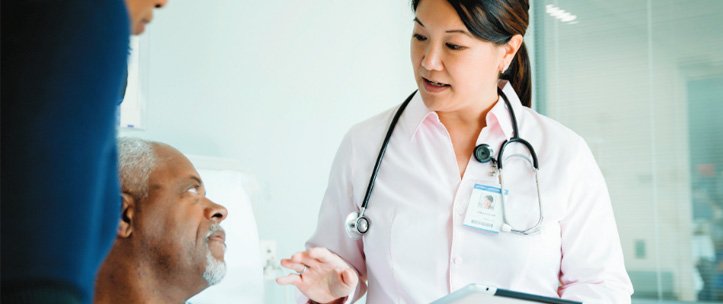Patient Resources
The Foundation to Advance Vascular Cures is committed to helping patients navigate their care journey. This list of resources is intended to help patients, caregivers, and advocates address some of the questions and challenges that come up in managing vascular healthcare.
-
Vascular Disease Information and Educational Flyers from Vascular Cures
Information on Peripheral Artery Disease (PAD) from the American Heart Association (AHA)
Information on vascular conditions from the Society for Vascular Surgery (SVS)
Patient education materials from the Society for Vascular Nursing (SVN)
-
Steve’s Story – A PAD patient talks about his vascular health journey
Walking Resources – Our resources page with information and links that can help you start walking regularly or give you ideas on how to add some variety to your routine
Exercise as Medicine – A research article from the Society for Vascular Medicine
Focus on Walking – A flyer about Walking to improve vascular health and reduce symptoms of PAD
Supervised Exercise Therapy for PAD – An overview of how supervised exercise can be prescribed as a treatment.
Exercise for Older Adults – Resources from the National Institutes of Health (NIH)
-
The Untold Story of Smoking and Vascular Disease – Smoking cessation can help you save your limbs.
Life-Saving Tips About Smoking and PAD – Studies show that smoking half a pack of cigarettes every day may increase the risk of PAD by 30 to 50%. Read the flyer to learn why.
If you’d like to learn more on how to take the next step in quitting smoking, try these smoking cessation programs:
Quit Assist– A collection of resources from the CDC with tips from former smokers Stories about patient’s with Buerger’s Disease.
Smokefree.gov – Resources available for veterans, women, teens, individuals 60 and over and Spanish-speakers. Learn how to build a “quit program” and access other tools and tips.
-
Choose the best diet for your vascular disease and seek expert advice on vascular-friendly nutrition. For more vascular-friendly recipes, check out these videos:
Healthy Oatmeal for Vascular Disease Prevention
-
Prediabetes Risk Test – Prediabetes is a serious health condition where blood sugar levels are higher than normal. The sooner you know you have prediabetes, the sooner you can take action to reverse it and prevent Type 2 Diabetes.
Living with Type 2 Diabetes Program – Created for those recently diagnosed with Type 2 Diabetes. This program offers participants an opportunity to learn more about the disease and how to manage it over 12 month-period. This program is available in English and Spanish.
Know Diabetes by Heart – A collection of resources from the American Heart Association and the American Diabetes Association.
Diabetes Food Hub – Resources on recipes, meal planning and creating a budget-friendly grocery list.
Life-Saving Tips for Managing Diabetes & PAD – Download this flyer to learn more about the link between diabetes and peripheral artery disease.
PAD and Foot Care – Download this flyer to learn why foot care is important for people who have PAD and diabetes. If not managed well, diabetes can cause poor blood flow or circulation to feet and legs.
-
The Patient Advocate Foundation is a non-profit organization that provides direct services to patients with chronic, life-threatening, and debilitating diseases to help access the care and treatment recommended by their doctor. Their services include case management assistance, an education resource library, and co-pay assistance.
The Patient Advocacy Network (PAN) works to help underinsured people with life-threatening, chronic, and rare diseases get the medications and treatments they need by assisting with their out-of-pocket costs and advocating for improved access and affordability. Use the search tool to review the ever-evolving list of disease funds, which may include vascular diseases.
The Family Heart (FH) Foundation advances research and education around familial hypercholesterolemia (FH) and elevated Lipoprotein(a), both of which contribute to heart disease. You can peruse their patient tools and resources here to find educational materials, care navigation, and more.
-
If you need assistance paying for your medications, you may be able to contact the pharmaceutical company who manufactures your medications directly. Most drug companies have sponsored patient assistance programs. Unfortunately, there is no standard enrollment processes. Someone at your health care provider’s office, like a case manager, nurse, or medical assistant, may be able to help you enroll. You can ask your local pharmacist for help, too.
In the meantime, here are some steps to try:
1. Search the name of your drug on GoodRx, to find coupons and pricing tips.2. Do an internet search using your medication’s name & “assistance program” or “savings program”
3. Call your medication’s manufacturer and ask if they have an assistance program
4. Check out other resources for prescription help below:
• Extra Help with Medicare Prescription Drug Plan Costs is designed to help Medicare beneficiaries who qualify for the program (Some restrictions apply.)
• The National Council on Aging Benefits Checkup is a free service that can help you find possible cost savings on your prescriptions.
• Find additional assistance programs that may be available in your state via RxAssist.org and NeedyMeds.org.
• RxOutreach.org is a non-profit pharmacy that can help with affordable medications.
• PharmD’s Guide to Drug Discounts can also provide useful links and tips.
The Foundation to Advance Vascular Cures is not sponsored by the organizations or websites listed on this page and is not responsible for any errors or omissions, or for the results obtained from the use of this information.
Health-related information on this website including text, graphics, images, and other material is for educational purposes only and therefore not intended to be a substitute for professional medical advice, diagnosis, or treatment. Always seek the advice of your physician or other qualified health providers with any questions you may have regarding a medical condition. If you think you may have a medical emergency, call your doctor or 911 immediately.


